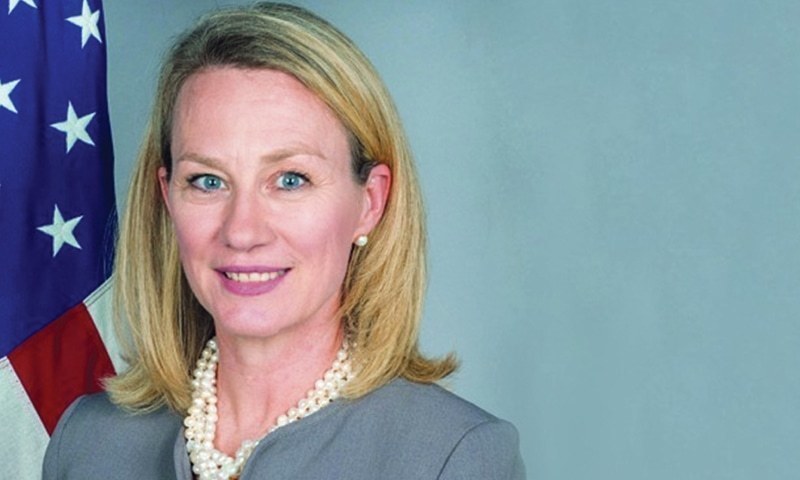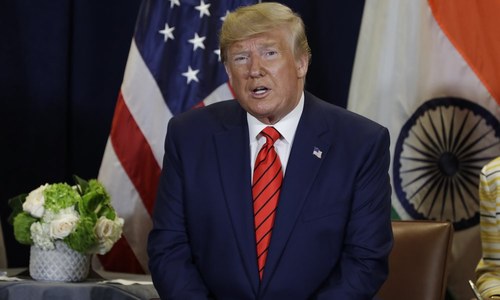US presses India to 'rapidly' ease restrictions in occupied Kashmir, seeks lower tensions

The United States wants New Delhi to quickly ease restrictions imposed in occupied Kashmir, a senior US official said on Thursday while reiterating President Donald Trump's willingness to mediate to ease tensions between India and Pakistan over the territory.
Trump met separately this week with both Indian Prime Minister Narendra Modi and Prime Minister Imran Khan, who are both due to address the UN General Assembly later today.
Read: Trump says ready to mediate on Kashmir if both Pakistan, India want
While Trump has forged a close bond with Modi, joining the Hindu nationalist at a massive rally on Sunday in Houston where the Indian leader boasted of his actions in Kashmir, a senior official said that the United States had concerns over the clampdown in the region.
"We hope to see rapid action — the lifting of the restrictions and the release of those who have been detained," Alice Wells, the top State Department official for South Asia, told reporters.
The India-occupied region has been facing a clampdown since August 5, when the Indian government revoked Article 370 of the Indian constitution, stripping it of its special status. The clampdown has now continued for over 50 days.
"The United States is concerned by widespread detentions, including those of politicians and business leaders, and the restrictions on the residents of Jammu and Kashmir," Wells said.
"We look forward to the Indian government's resumption of political engagement with local leaders and the scheduling of the promised elections at the earliest opportunity."
"The world would benefit from reduced tensions and increased dialogue between the two countries [India and Pakistan] and, given these factors, the president is willing to mediate if asked by both parties," she said.
President Trump has repeatedly offered arbitration to reduce tensions between India and Pakistan, despite New Delhi’s repeated rejection of his offers. On Wednesday, the US president said he encouraged India and Pakistan to work out their differences in separate meetings with their prime ministers this week.
"I said, 'Fellas, work it out. Just work it out'," Trump said.
He had first offered to mediate during a meeting with Prime Minister Imran in July.
A 'special relationship'
During his time in the US, Prime Minister Imran has denounced Modi, even likening his ideology to Nazi Germany, as he has previously done.
Wells characterised the premier's comments as unhelpful, saying: "A lowering of rhetoric would be welcome, especially between two nuclear powers."
She also questioned why Prime Minister Imran was not also speaking out about China, which has detained an estimated one million Uighurs and other Turkic-speaking Muslims.
"I would like to see the same level of concern expressed also about Muslims who have been detained in western China, literally in concentration-like conditions," she said.
China is a major diplomatic and economic partner of Pakistan. Imran, asked about the Uighurs at a think tank on Monday, declined comment, saying that Pakistan had a "special relationship" with China and would only raise issues in private.














































